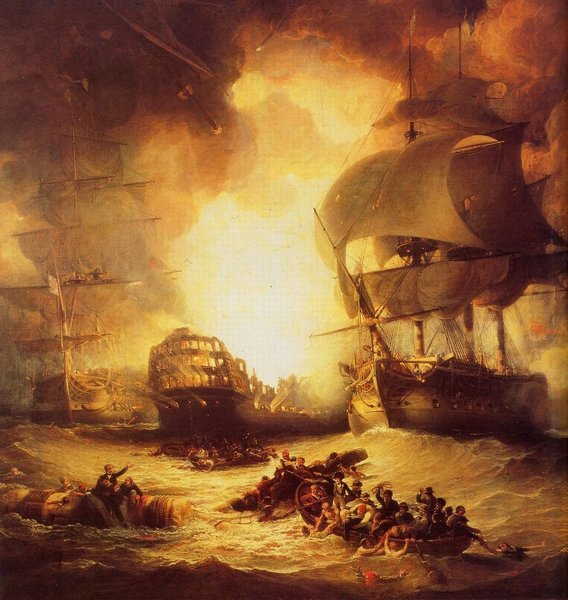
In TWAF Theobald drills Ernest about the poem Casabianca:
"Then he (Ernest) thought of Casabianca. He had been examined in that poem by his father not long before. 'When only would he leave his position? To whom did he call? Did he get an answer? Why? How many times did he call upon his father? What happened to him? What was the noblest life that perished there? Do you think so? Why do you think so?'" (Chapter 29)
Casabianca is a 19th century poem by Felicia Hemans and it tells the story of young boy who refuses to leave a burning ship without the command of his father. His father, unbeknownst to the young boy, is already dead. The "young faithful heart" is eventually killed by an explosion but is honored for his loyalty to his father.
Butler, however, blames the father for the son's death.
"It never occurred to him that the moral of the poem was that young people cannot begin too soon to exercise discretion in the obedience they pay to their Papa and Mamma."
Had the boy used discretion, he would not have died. Butler further uses Ernest to show the consequences of having not used discretion in one's obedience to his parents. One consequence is that Ernest would not have been as gullible, believing everything he is told. Ernest is unstable and vacillates between goals because he is tossed to and fro by every new wind of doctrine to which he is introduced.
Another consequence is that he would have been a better father. Ernest gives his children away to a more stable family during their formative years because he fears he will be the same type of father to them that Theobald was to him. Had he used discretion toward his parents in his youth, he would not been so much like his father during his younger years.
The painting above is "The Destruction of L'Orient" (1825-27) by George Arnald.

No comments:
Post a Comment